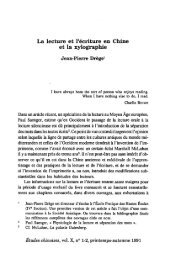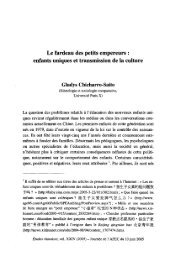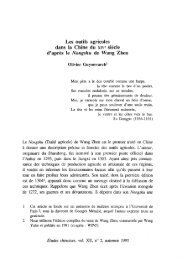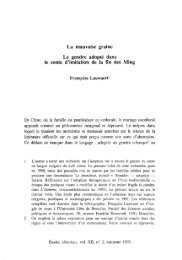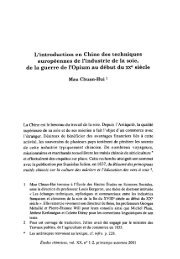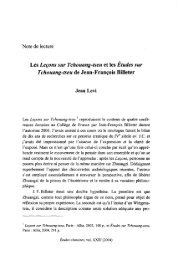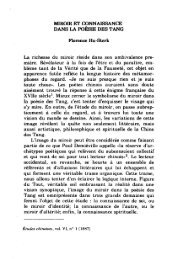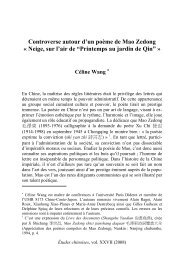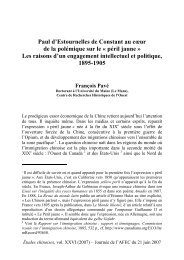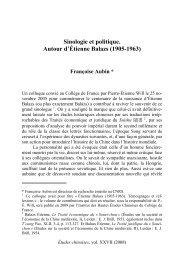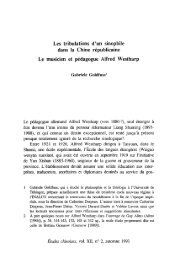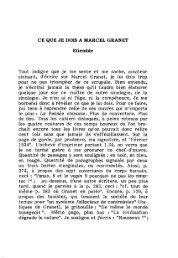Create successful ePaper yourself
Turn your PDF publications into a flip-book with our unique Google optimized e-Paper software.
Comptes rendus<br />
The book begins with a sweeping and comprehensive look at Eurasia.<br />
If one read only his descriptions of geography and climate, and his références<br />
to various grand théories of Eurasian history, one might conclude<br />
that Perdue's work fit in with the long tradition of writing in which<br />
peoples move rather like tides, pulled by great ecological or<br />
anthropological forces. That would be a serious mistake. Early on Perdue<br />
mentions the domestication of the horse, the resuit of human intelligence<br />
and activity. This signais an approach to history in which settings, natural<br />
constraints, and social and économie forces, ail receive their due, but in<br />
which the human mind and will still play a major and even décisive rôle in<br />
shaping events.<br />
Having surveyed the natural and human setting, Perdue then turns to<br />
the expériences of states rooted in the East China plain before the Qing in<br />
dealing with the nomads of Central Asia, laying particular stress upon the<br />
Ming. That dynasty had begun with ambitious campaigns against<br />
Karakorum, led by gênerais and emperors who clearly modeled<br />
themselves on their Yuan predecessors. But thèse campaigns proved very<br />
difficult militarily, in part because the Ming élite forgot fairly quickly how<br />
to negotiate with and fight the nomads, and in part because the Ming was<br />
unable to provide adéquate logistical support to its armies. Less than a<br />
century after the dynastie founding, an emperor had been defeated and<br />
taken captive by the Mongols, and décision makers had begun to search,<br />
wimout success, for an approach to the steppe that would somehow both<br />
control die nomads and maintain the superiority of the "civilized" Chinese<br />
over the "barbarian" Mongols. This proved impossible to do. So the Ming<br />
poured vast funds into a signaling and fortification system, later<br />
misleadingly dubbed "the Great Wall," a poor political compromise that<br />
seemed intended to solve the problem by excluding it - but failed.<br />
We are now ready for the entry of the remarkable man known as the<br />
Kangxi emperor (1654-1722) who "in an astonishingly short period of<br />
time, a mère thirty years from taking personal power, [...] decisively imposed<br />
his will on the régents - his own uncles - the gênerais ruling the<br />
southwest, Taiwanese aborigines, and most impressively, the free nomadic<br />
leaders of Mongolia." Many factors contributed to this achievement, but as<br />
493




